Interview granted in Amman by His Majesty King Abdullah II of Jordan to Christian Malar, Editor-in-chief at France 3 Television. Images: Jordanian TV. Source: Communication & Information Division, The Royal Hashemite Court, Amman, Jordan, September 28, 2003. (Begin transcript)
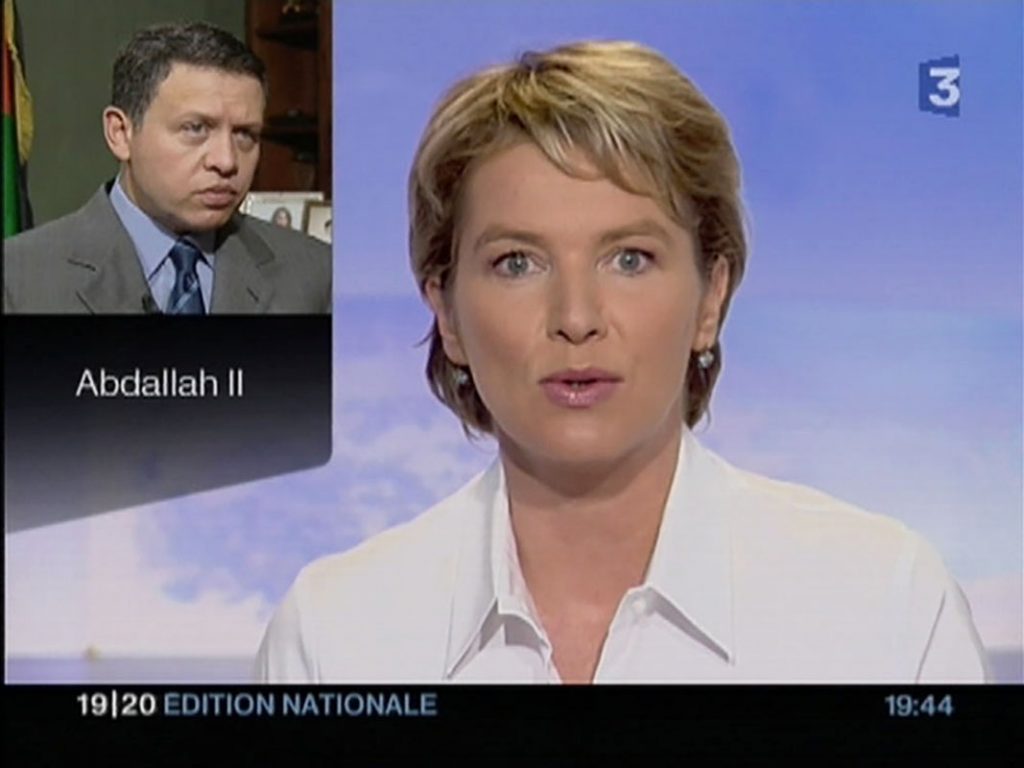
Christian Malar: Your Majesty, Jordan is squeezed right now between Iraq which is mired in the mug and a deadlocked roadmap to peace. According to you, what should be done to get out of this tragic nightmare before it gets worse ?
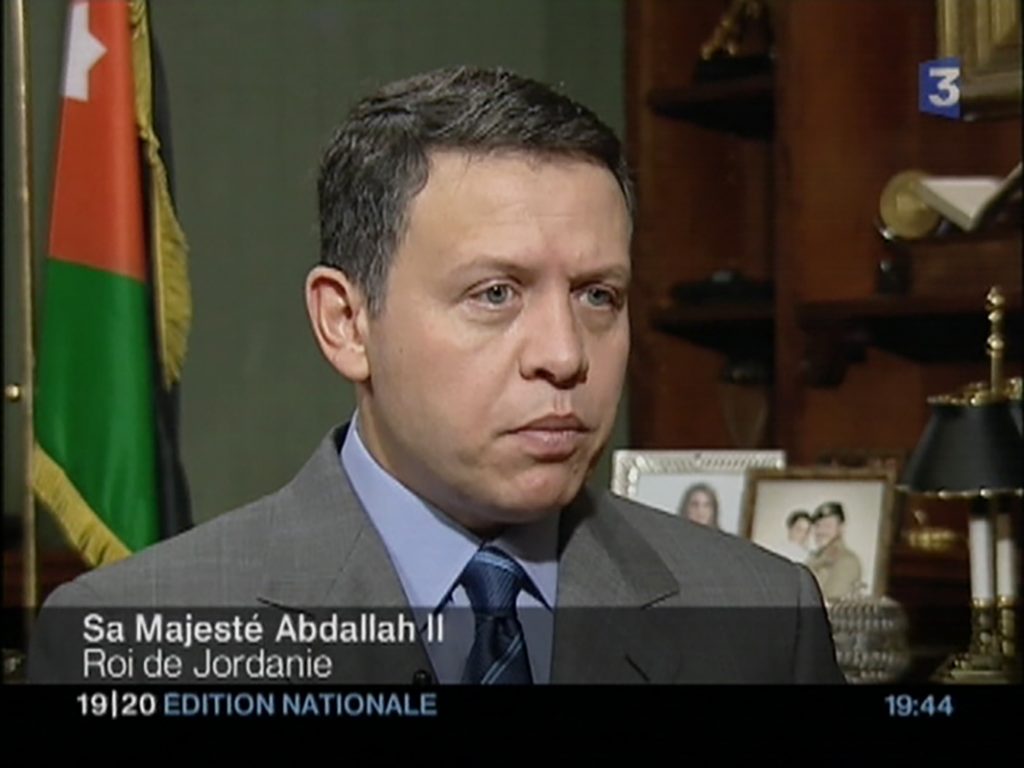
Abdallah II: Well on the Israeli-Palestinian issue, as we have all always said this is the core issue in the hearts of everybody in the region. I believe that there is no alternative to the roadmap and we need to get the process back on track. That means, on the Palestinian side this means trying to get Abu Alla’s government engaged as quickly as possible, to see what they are capable of doing, and then getting him to coordinate with the international community, the quartet: the United States, Europe, Russia, and the United Nations and get the process going again. Because at the moment, without anything on the ground, then the cycle of violence will continue between the Israelis and Palestinians.
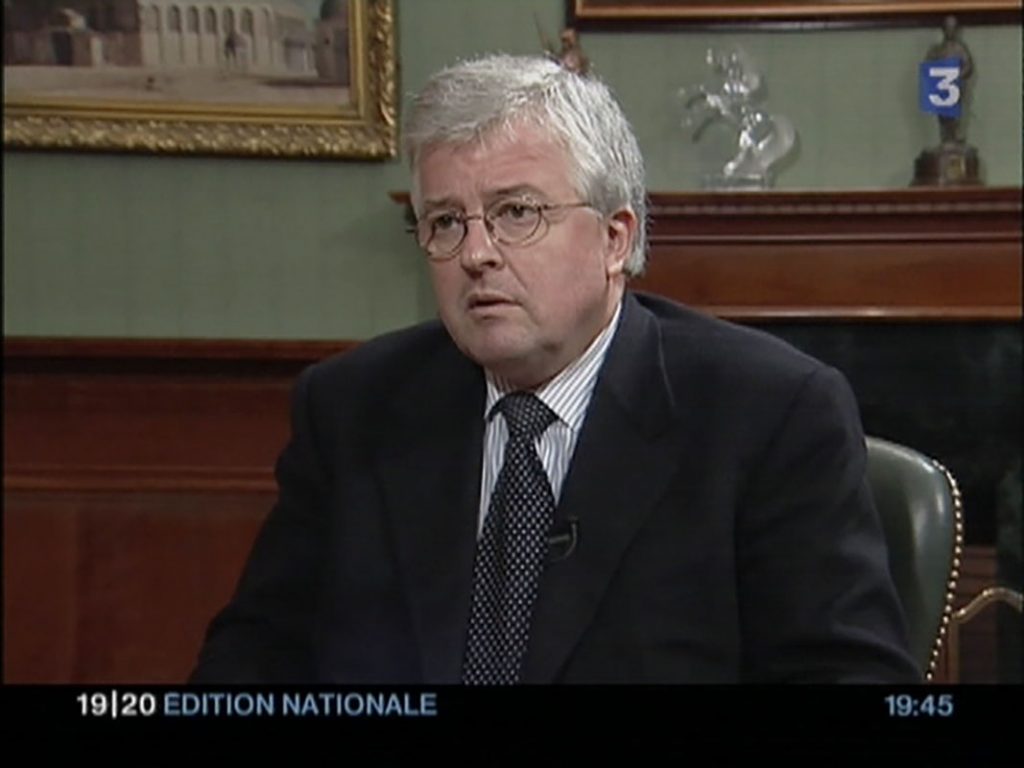
Christian Malar: Getting back to Iraq in particular, many countries obviously, after the UN General Assembly refused to side with the US administration because they do not agree with this unilateralist approach which, they say, will lead to more hatred towards the United States and to more terrorist attacks. Do you subscribe to that ?
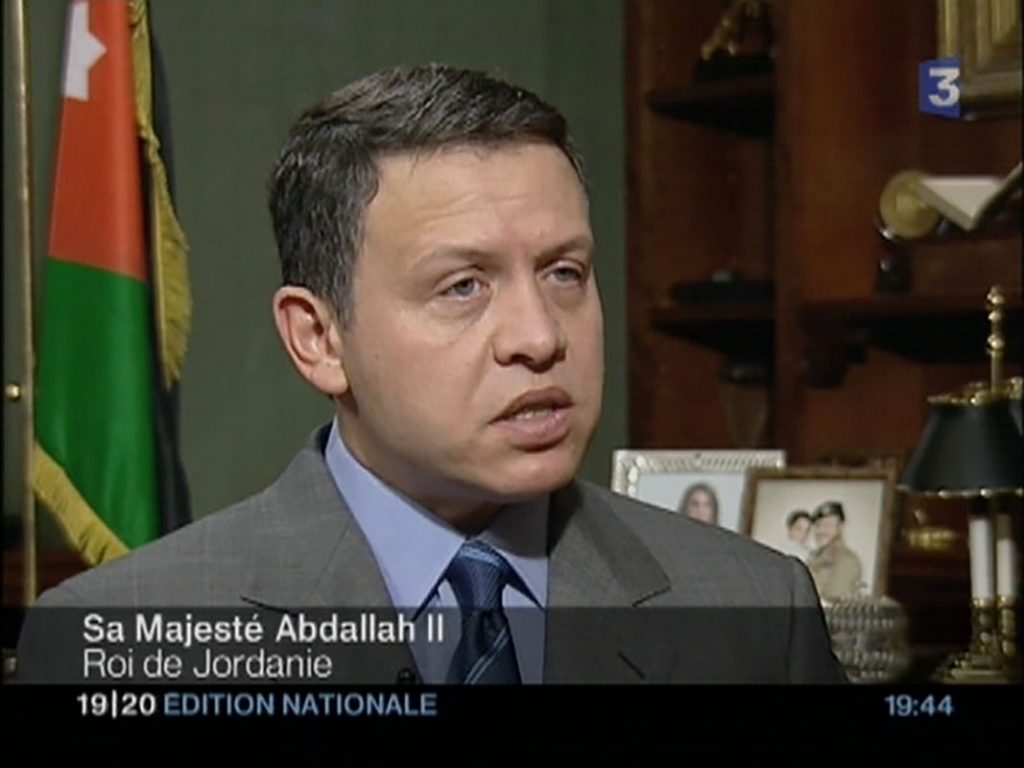
Abdallah II: Well you know the President of the United States was fairly articulate in wanting to have international engagement in Iraq, and I think all of us want to move the process as quickly as possible. So I think if you are in the United States, or in France, or anywhere else in the World, we at the end of the day want the same things: a future for Iraq and the Iraqi people as soon as possible. But on the practical level, if you looked at the United Nations coming into Iraq, this cannot happen overnight, there needs to be a period of transition. So although we want everything to be done today, I think realistically on the ground things will take a bit longer than you wish.
Christian Malar: When you say longer, how long ?

Abdallah II: Again there’s a political coordination element and also a security element on who would commit forces. I know the United States and the United Nations are working this out and I know our friends in Europe are trying to get engaged in the same way. Again, I think, because it was such a difficulty once the war was over in Iraq, it’s taking a while for the dust to settle. So there’s a bit of confusion still out there but I think in the good hearts of many around the world, including the President of the United States, they want to be done as quickly as possible.
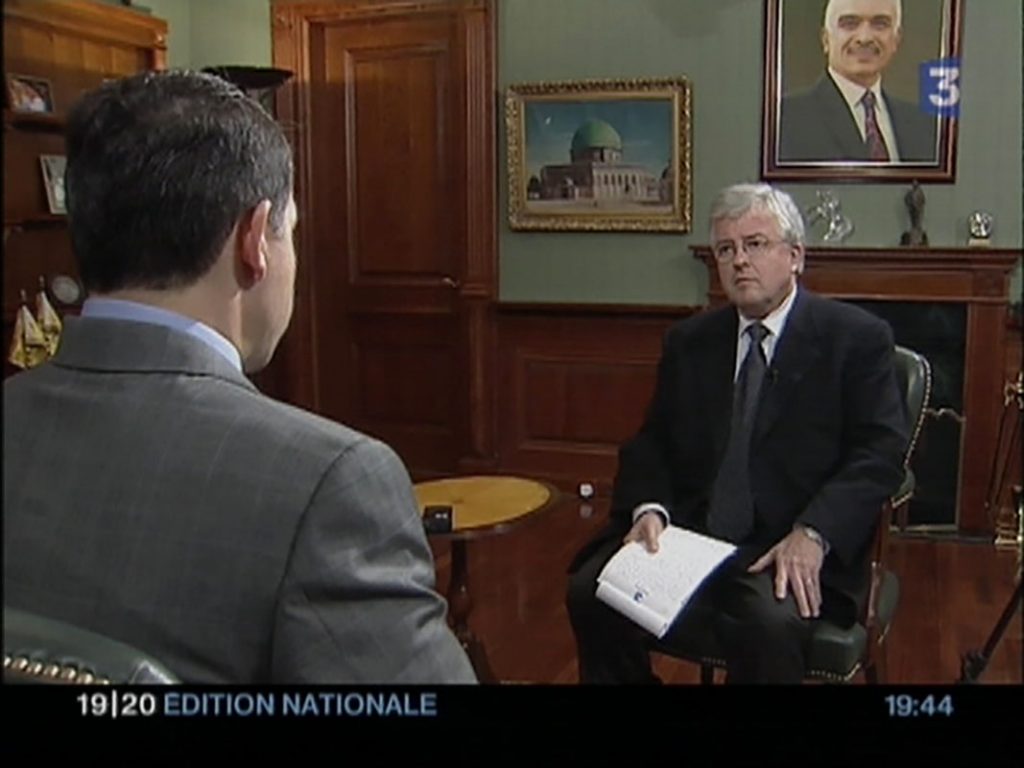
Christian Malar: A lot of leaders in the World do not agree with George Bush, and they would like him to change his policy towards Iraq drastically. Would you agree with that? Would you advice him to change his Iraq policy?
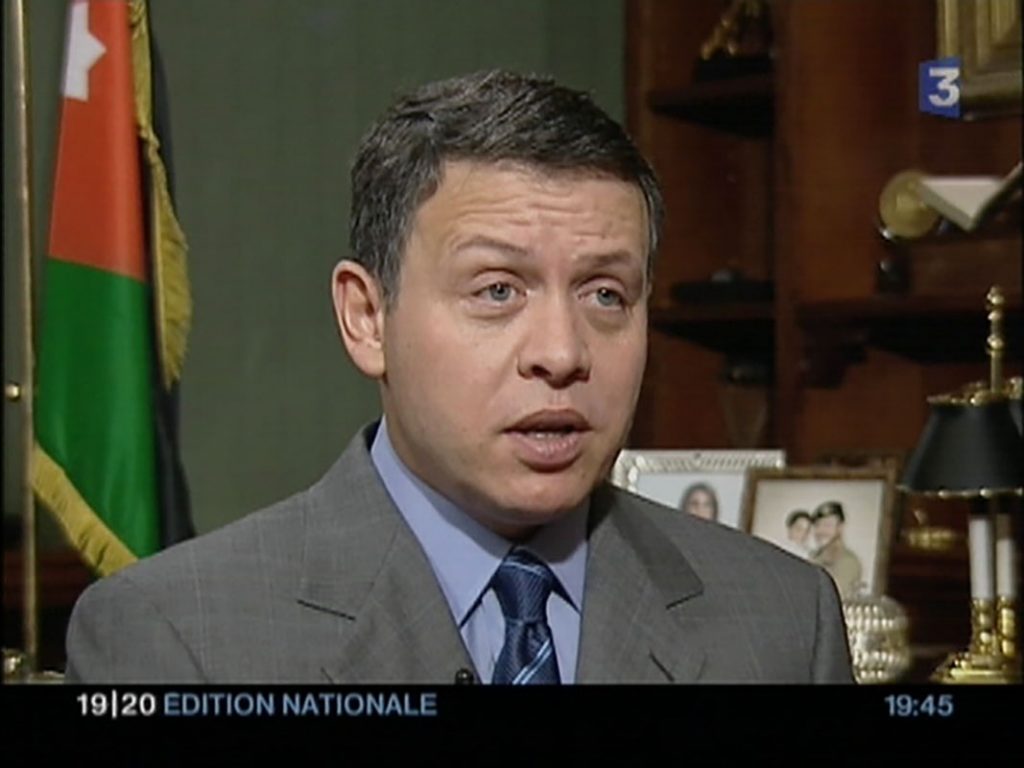
Abdallah II: Correct me if I’m wrong but my impression from our visit to the United States recently, is that the President wants to get a role to the international community as quickly as possible.
I know the devil’s in the details, but I know he was very clear that he doesn’t want the US and the immediate coalition there by themselves. He wants to open it up to the international community.
How we get there is under negotiations at the moment and the discussions that happened in the United Nations in the past week or so, President Putin was in Camp David very recently, these are subjects that are being discussed by all sides: how do we move from the position we are in now to the one you subscribe to, so that there is more of an international presence in Iraq.
Christian Malar: You are going to meet President Chirac. You know he is at odds with the US administration on Iraq. President Chirac is the one saying we are ready to share the burden with the US but the US want to keep the overall control, they want to have everybody to come to help on the ground but they do not want to share anything. Do You share Chirac’s views on Iraq ?
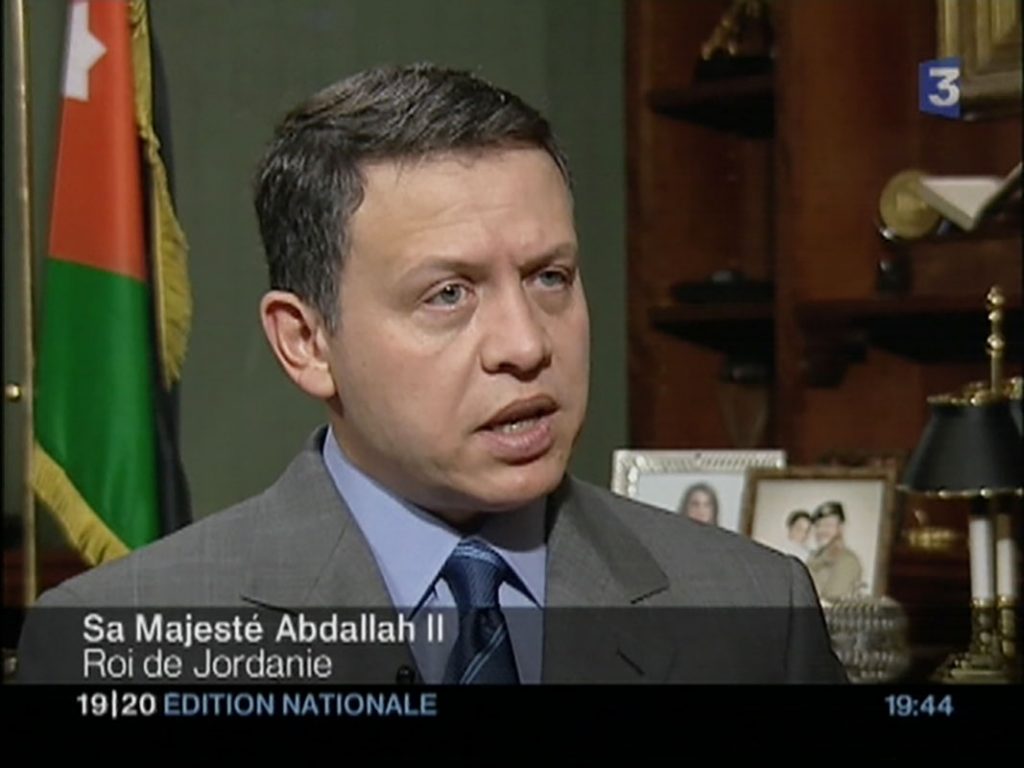
Abdallah II: Well, in a way, I subscribe to both elements of that because I think that – forget some of the innuendos that keep coming up in the press – I think both President Chirac and President Bush want to move it to the international community. But I think, like I said, we have to be realistic on the ground. You can’t today say or tomorrow have international troops come in just like that. I wish it was the case. But there’s a lag time, which are the countries and how are they are going to participate.. These are things that need to be worked out and let’s put it this way, the positive, the Americans are engaging the United Nations, are engaging the international community and in particular the Europeans, on how best to do that. So let them talk this out and I’m sure they’ll come to a better agreement in the very near future.
Christian Malar: When you look closely at what is going at what is going on in the Middle East right now. It seems -it’s an impression – we have that since the Israeli officials threatened Chairman Arafat of being exiled or even being killed, we have no more terrorist attacks. According to you, does that mean that Chairman Arafat succeeded in exerting pressures upon Hamas and Jihad leaders to refrain from having more terrorist attacks against Israel ?
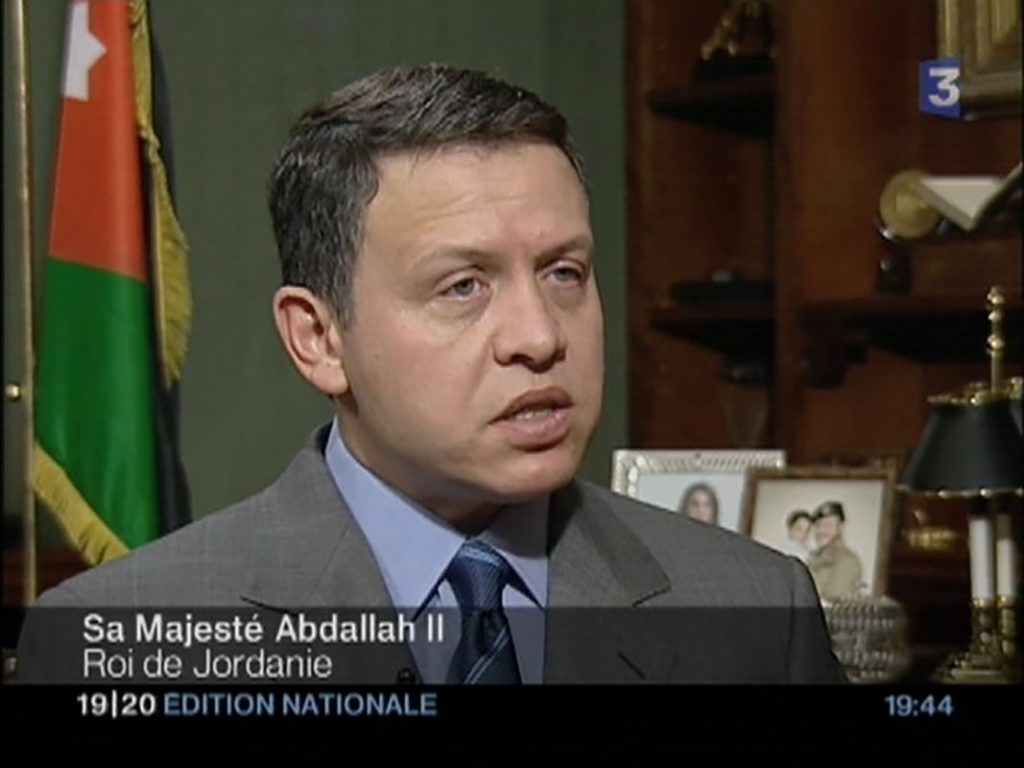
Abdallah II: I really don’t know. My instinct is there a desire to move the process; we have a new Palestinian government under the premiership of Prime Minister Abu Alla and I think everybody would like to give him the benefit of the doubt. And let’s hope that working with us in the international community, we move him into a position where he’s actually giving something to his people – then I think that’s a reflection of the situation we’re in at the moment.
Again, terrorist incidences give Israel an excuse to also retaliate and go back to the cycle of violence. I’m pleased that there has been a lull, let’s hope that the lull happens by both sides to give the political process a chance to get back on track.

Christian Malar: Do you think we can have peace as long as there is not a more balanced approach from the US towards the Palestinians because most of the people do think that the Americans have a too pro-Israel stand ?
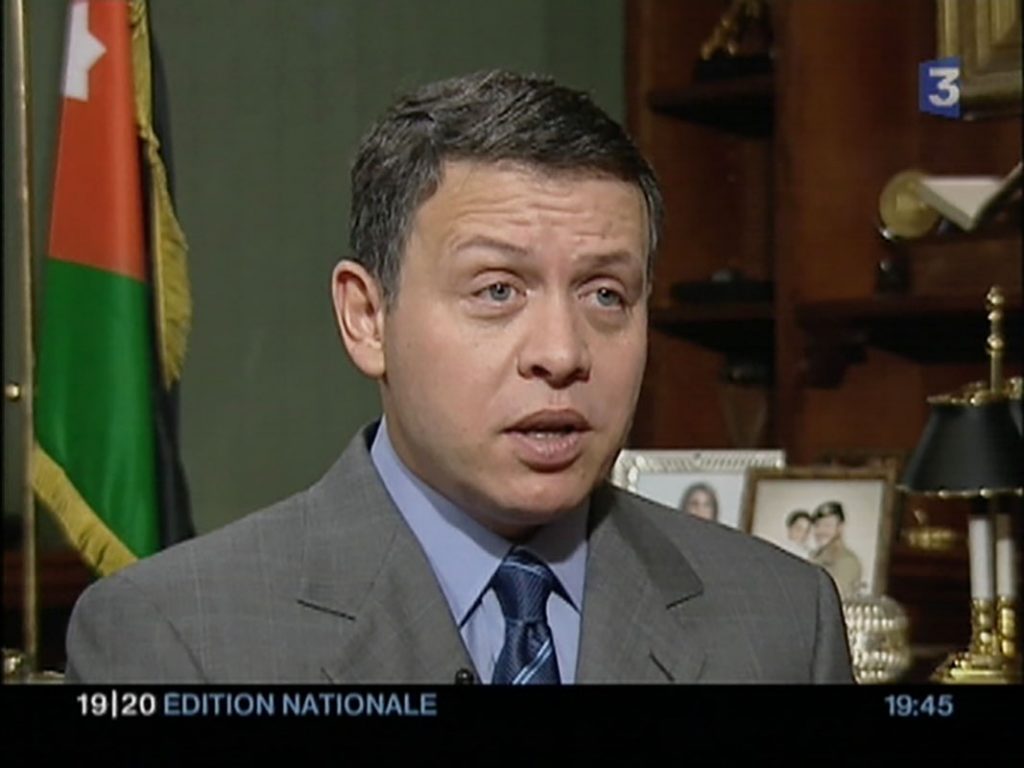
Abdallah II: I think the problem is that the majority of Americans do not understand what is actually happening on the ground so the perception is that it is always the Palestinians who are at fault which at the same time gives the impression in the Middle East that America is biased. This comes with education and with reaching out to the American society to explain to them what is happening in the area and to have better understanding. The President of the United States is committed to a Palestinian state, hopefully by 2005. So from the sincerity of his heart, he wants this thing to happen.
The problem is the process, how long it will take. We need to be able to get the Americans to clear to the Israelis because I think the loss of Abu Mazen was a terrible shame I think for everybody because it derailed the process and allowed the extremists to win the day on both sides and I strongly believe that even the Israeli government could have done a lot more to support Abu Mazen to make him succeed – in stopping the settlements, in moving out Palestinian villages, in allowing economic reform and finances to get to the Palestinians. When these things were not happening, there was an extra burden on Abu Mazen and it was not surprising that he resigned. So I think there’s a lot more that both sides need to be doing.
Christian Malar: Do you think there’s a chance to succeed before the US presidential elections in thirteen months because President Bush, like most of his predecessors, when it comes to a period when they are going to be involved in presidential campaign, nothing will happen ?
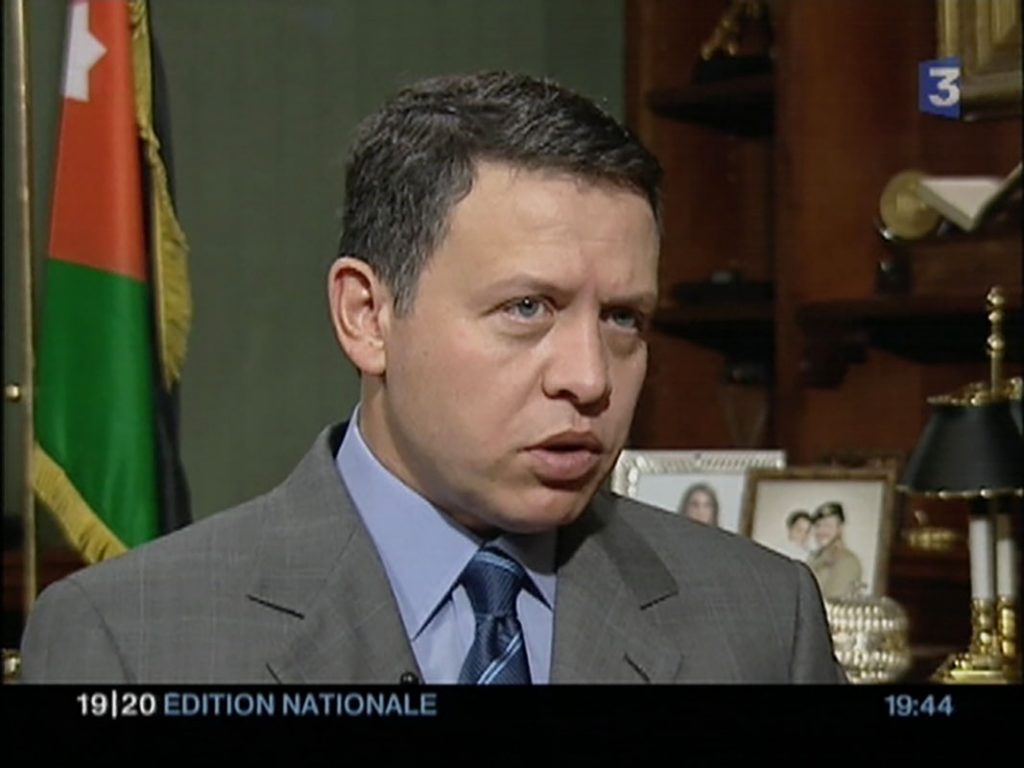
Abdallah II: Well let’s put it this way, if the President is less involved, it’s because he’s busy on other things. He’s a very sincere man when it comes to articulating such ambitions: he believes in a future for the Palestinians. So if he’s not engaged, it’s because he’s busy with the elections, not because he’s playing politics. That’s one major difference.
The other thing is that I believe we have to be able to create an atmosphere for the President to step in. At the moment, we’re at a dead-end and we need to get the process back. If we can create enough movement on the ground, getting people back onto the peace process, the roadmap, then the president can fully get engaged. He has what he always used to call a presidential card, when he plays that, he has to play it because something is actually happening on the ground.
At the moment, there’s nothing for him to be able to do, so it’s work for Jordanians, Israelis, Palestinians, part of the international community, to move the process back onto the roadmap and then give some tangible edge to that so that the president can step in and say right, this is what’s needed next irrelevant of what is happening with the elections. If we give him the ambition, he will be able to produce.
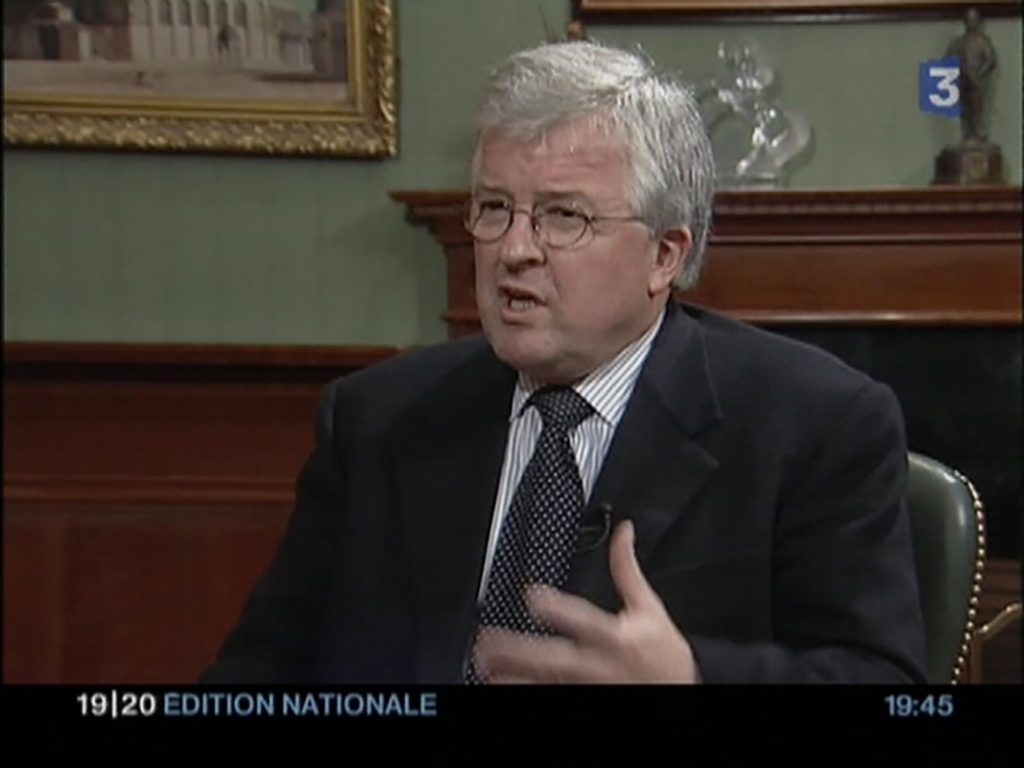
Christian Malar: You have been fighting hard for your great country. In this unpredictable World, how do you plan to lead Jordan that you have already led on the right way ?
Abdallah II: We’re not going to use the regional problems or the international obstacles as an excuse not to continue to move forward. So economic and social and now the new dimension of political reform will continue to be the course of what you will see Jordan taking over the next couple of years.
It is a very tough neighborhood and a very difficult area as you well know, but our people deserve better. We can achieve a better life for Jordanians and we are not taking no as an excuse. So we will continue on these reforms and we’ll make it.
Useful links:










